The Sense of the Past
The Sense of the Past
ESSAYS IN THE HISTORY OF PHILOSOPHY
Bernard Williams
Edited and with an introduction by Myles Burnyeat
PRINCETONUNIVERSITYPRESS
PRINCETONANDOXFORD
Copyright 2006 by Princeton University Press
Published by Princeton University Press, 41 William Street, Princeton, New Jersey 08540
In the United Kingdom: Princeton University Press, 3 Market Place, Woodstock,
Oxfordshire OX20 1SY
All Rights Reserved
Fourth printing, and first paperback printing, 2008
eISBN: 978-1-40082-710-7
The Library of Congress has cataloged the cloth edition of this book as follows
Williams, Bernard Arthur Owen.
The sense of the past : essays in the history of philosophy / Bernard Williams; edited and with an introduction by Myles Burnyeat.
p.cm.
Bernard Williams, complete philosophical publications: p.
Includes bibliographical references.
1. PhilosophyHistory. I. Burnyeat, Myles. II. Title.
B29.W494 2006
190dc222005047734
British Library Cataloging-in-Publication Data are available
This book has been composed in Sabon
Printed on acid-free paper.
press.princeton.edu
Printed in the United States of America
10 9 8 7 6 5 4
Contents
Patricia Williams
Myles Burnyeat
Preface
Patricia Williams
For a philosopher with an abiding interest in classical civilization, it was, perhaps, fitting that Bernard should die in Rome. The hospital was on the site of an ancient temple to Aesculapius, god of healing, and said by Plato to have been recalled by Socrates in his final words.
He worked on the choice of pieces for this volume while his last book, Truth and Truthfulness, * was in press. The majority were to have been on classical philosophy. The essays on Nietzsche have been added to the list at the suggestion of Raymond Geuss, who, with Barry Stroud, advised on the final shape of this volume. I am very grateful for their help. Finding an unpublished essay on Collingwood among Bernards papers was an added bonus. Sadly, he did not live to write the substantial introductory essay on the history of philosophy he had planned. It was a subject that had engaged him for many years. Adrian Moore, who knew Bernards thoughts well, has kindly sketched out the likely content as follows:
In some notes that he left behind, Bernard indicated how he wouldhave used this essay to return to a distinction which he first drew inthe preface to his book on Descartes,and which he draws again inchapter 17 of this collection: the distinction between the history ofideas and the history of philosophy.
The history of ideas is in the first instance history; the history of philosophy,to which both the book on Descartes and this volume belong,is in the first instance philosophy. Bernard did not think that this distinctionwas a sharp one, but he did think that it was an importantone, and he always prized the special contribution to philosophy thathe took the history of philosophy to make.
This contribution was not, as philosophers in the analytic traditionused to think, to indicate voices of yore which could be heard as participatingin contemporary debates: precisely not. It was to indicate voicesof yore which could not be heard as participating in contemporarydebates, and which thereby called into question whatever assumptionsmade contemporary debates possible.
In his notes Bernard also wrote that, although it is clear why philosophyneeds history (for reasons that he explores in Truth and Truthfulness), it is less obvious why it needs the history of itself. He surelymeant just that: it is less obvious why it needs the history of itself.There was no implication that philosophy does not need the history ofitself. In these essays he helps to show why it does have this need, andhow the need both can and should be met.
Bernard and I owe a special debt to Myles Burnyeat for the immense amount of time he has devoted to tracking down and checking everything that appears here and, especially, for his introduction. There is no one Bernard admired more in the field of classical philosophy today.
My thanks also to Walter Lippincott, the former Director of Princeton University Press, and the staff in Princeton, whose commitment to Bernard as an author, and to high standards and professional expertise in every aspect of publication are so appreciated at a time when scholarly publishing faces complex financial challenges.

These papers originally appeared in the places listed below. Permission from the publishers to reprint them is gratefully acknowledged.
1. The Legacy of Greek Philosophy in The Legacy of Greece:A New Appraisal, ed. M. I. Finley (Oxford: Oxford University Press, 1981), 202255. By permission of Oxford University Press.
2. The Women of Trachis: Fictions, Pessimism, Ethics in TheGreeks and Us: Essays in Honor of Arthur W. H. Adkins, ed. Robert B. Louden and Paul Schollmeier (Chicago: University of Chicago Press, 1996), 4353. 1996 by The University of Chicago. All rights reserved.
3. Understanding Homer: Literature, History and Ideal Anthropology in Being Human: Anthropological Universality in TransdisciplinaryPerspectives, ed. Neil Roughly (Berlin: De Gruyter, 2000), 224232.
4. Pagan Justice and Christian Love in Virtue, Love and Form: Es-saysin Memory of Gregory Vlastos, ed. Terence Irwin and Martha Nussbaum, in Apeiron 26 (Edmonton, AB: Academic Printing and Publishing, 1993), 195207. By permission of Academic Printing and Publishing.
5. Introduction to Platos Theaetetus in Platos Theaetetus, trans. M. J. Levett, rev. Myles Burnyeat (Indianapolis: Hackett, 1992), viixx.
6. Plato against the Immoralist in Platons Politeia, ed. Otfried Hffe (Berlin: Akademie Verlag, 1997), 5567.
7. The Analogy of City and Soul in Platos Republic in Exegesisand Argument: Studies in Greek Philosophy Presented to GregoryVlastos, ed. E. N. Lee, A.P.D. Mourelatos, and R. M. Rorty (Assen: Van Gorcum, 1973), 196206.
8. Platos Construction of Intrinsic Goodness in Perspectives onGreek Philosophy: S. V. Keeling Memorial Lectures in AncientPhilosophy 19912002, ed. R. W. Sharples (London: Ashgate, 2003), 118.
9. Cratylus Theory of Names and Its Refutation in Language andLogos: Studies in Ancient Greek Philosophy presented to G.E.L.Owen, ed. Malcolm Schofield and Martha Nussbaum (Cambridge: Cambridge University Press, 1982), 8393.
10. Plato: The Invention of Philosophy (London: Phoenix, 1998); also published as a chapter of The Great Philosophers: FromSocrates to Tring, ed. Ray Monk and Frederic Raphael (London:Weidenfeld and Nicholson, a division of The Orion Publishing Group, 2000), 3975.
11. Acting as the Virtuous Person Acts in Aristotle and Moral Realism, ed. Robert Heinaman, Keeling Colloquia 1 (London: UCL, 1995), 1323.
12. Aristotle on the Good: A Formal Sketch in Philosophical Quarterly 12 (Oxford: Blackwells, 1962), 289296.
13. Justice as a Virtue in Essays on Aristotles Ethics, ed. Am lie Oksenberg Rorty (Berkeley and Los Angeles: University of California Press, 1981), 189199. 1981 The Regents of the University of California. A less exegetical version appears in Bernard Williams,
lie Oksenberg Rorty (Berkeley and Los Angeles: University of California Press, 1981), 189199. 1981 The Regents of the University of California. A less exegetical version appears in Bernard Williams,
Next page
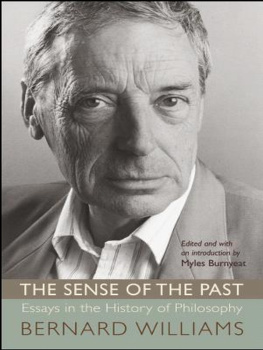
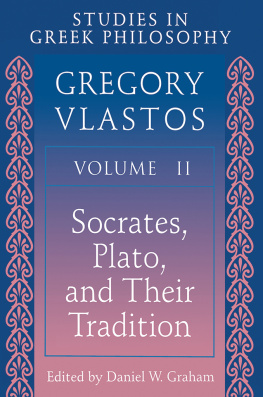
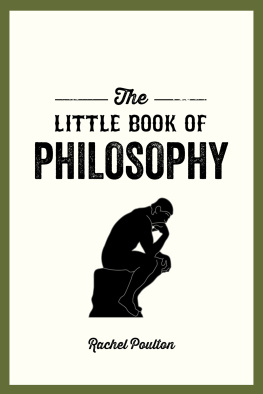
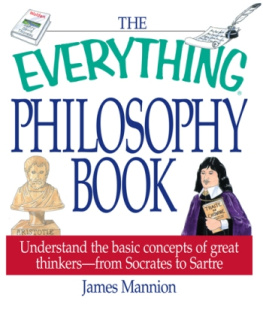
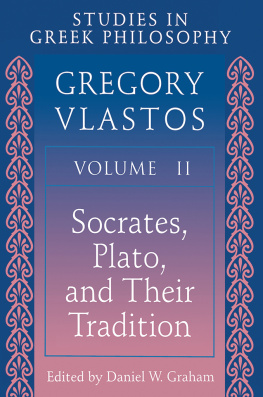



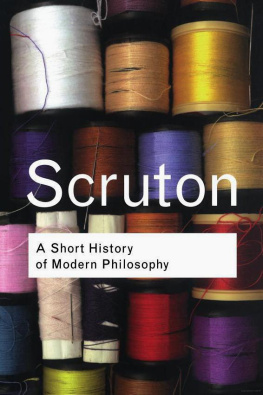
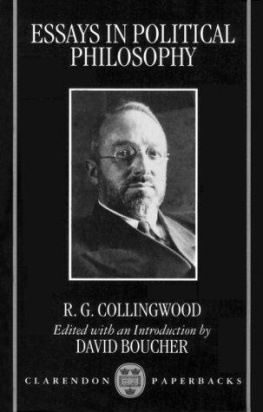

 lie Oksenberg Rorty (Berkeley and Los Angeles: University of California Press, 1981), 189199. 1981 The Regents of the University of California. A less exegetical version appears in Bernard Williams,
lie Oksenberg Rorty (Berkeley and Los Angeles: University of California Press, 1981), 189199. 1981 The Regents of the University of California. A less exegetical version appears in Bernard Williams,